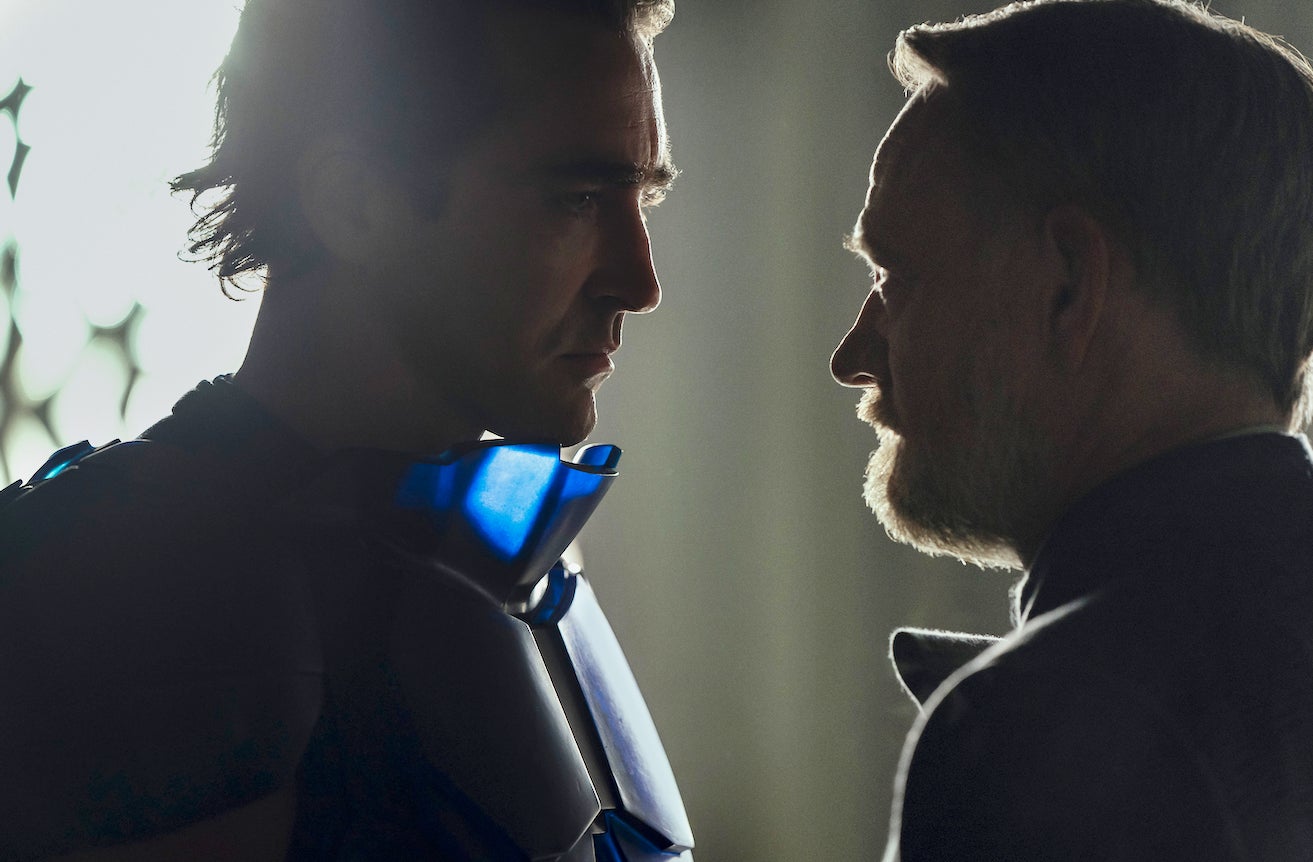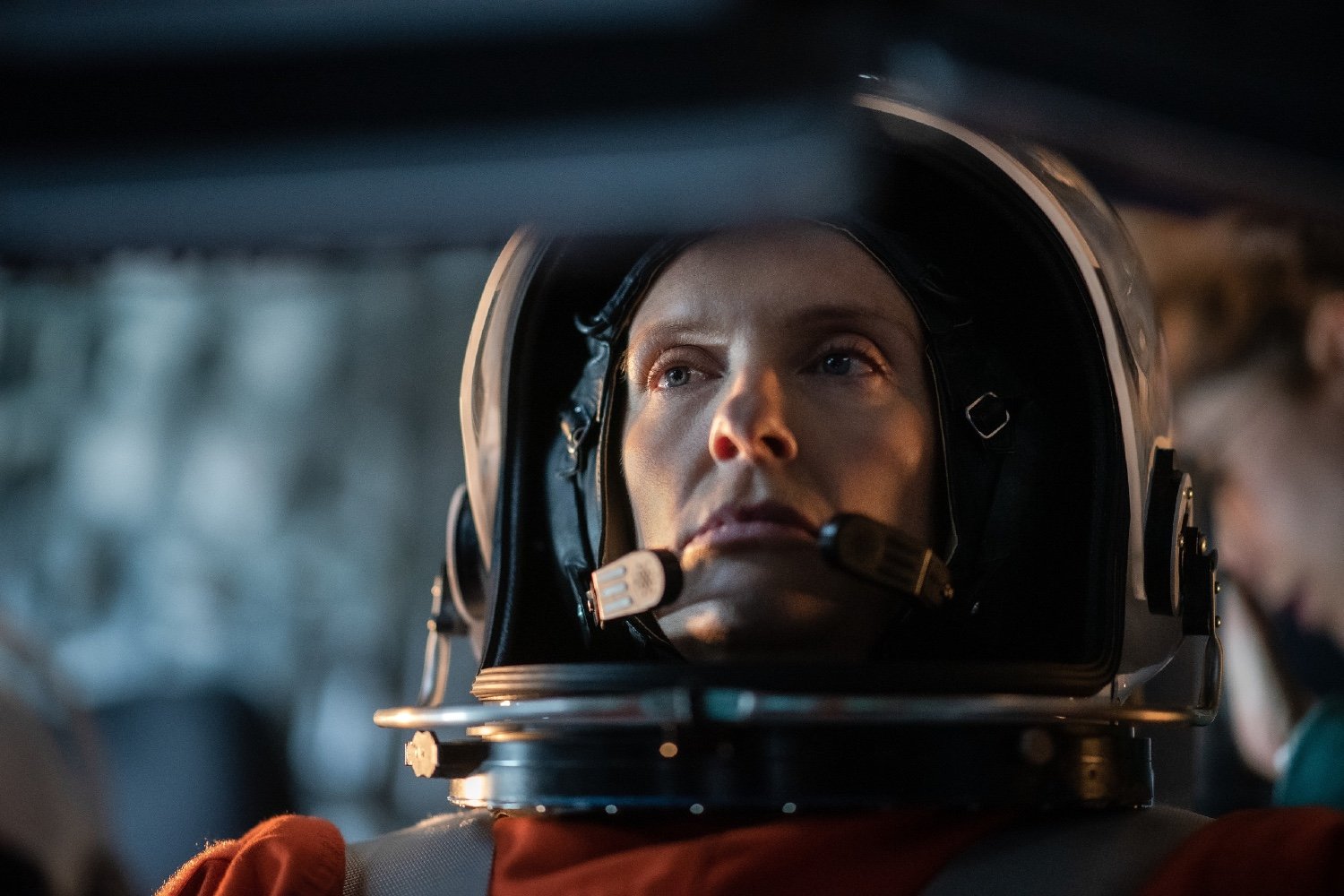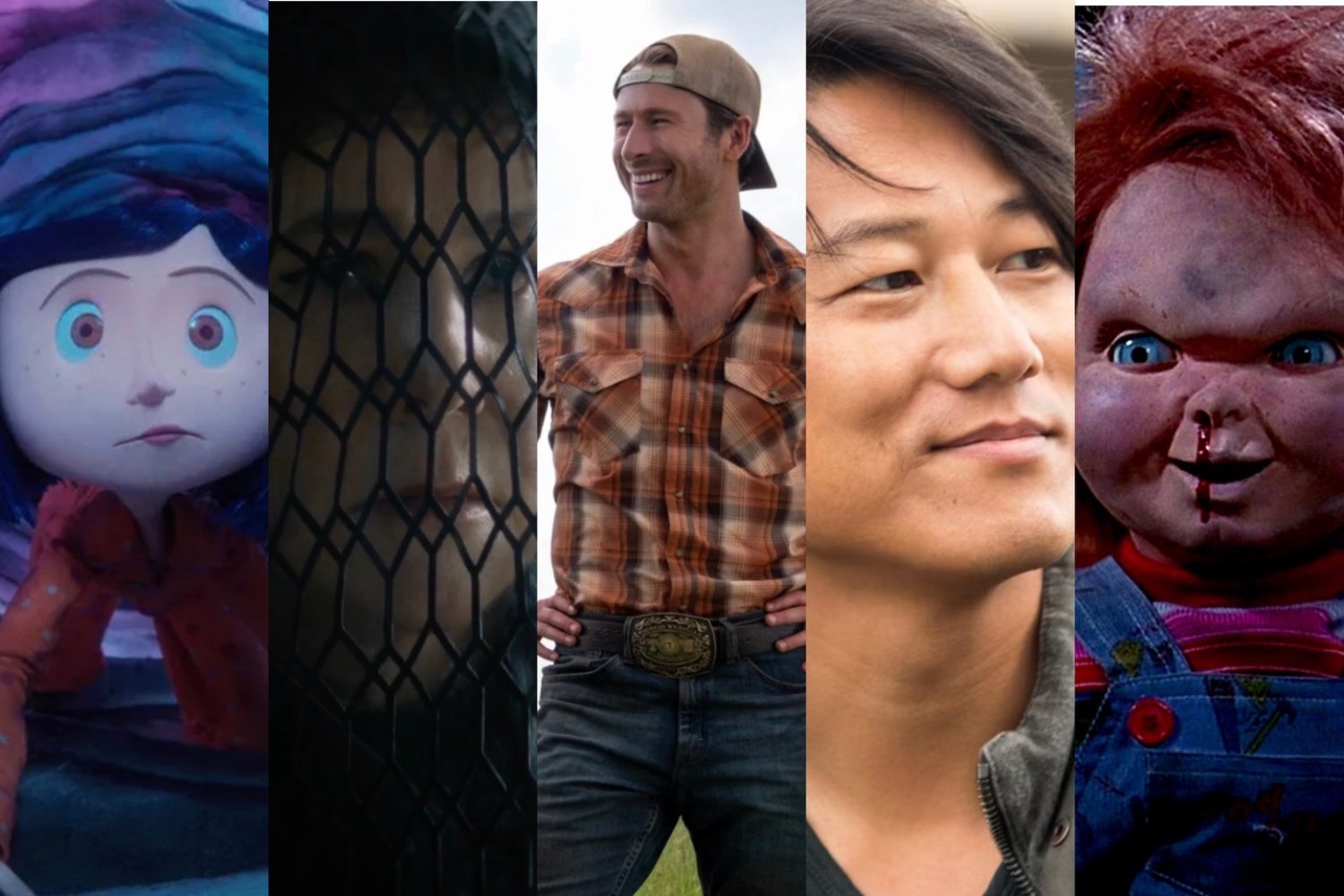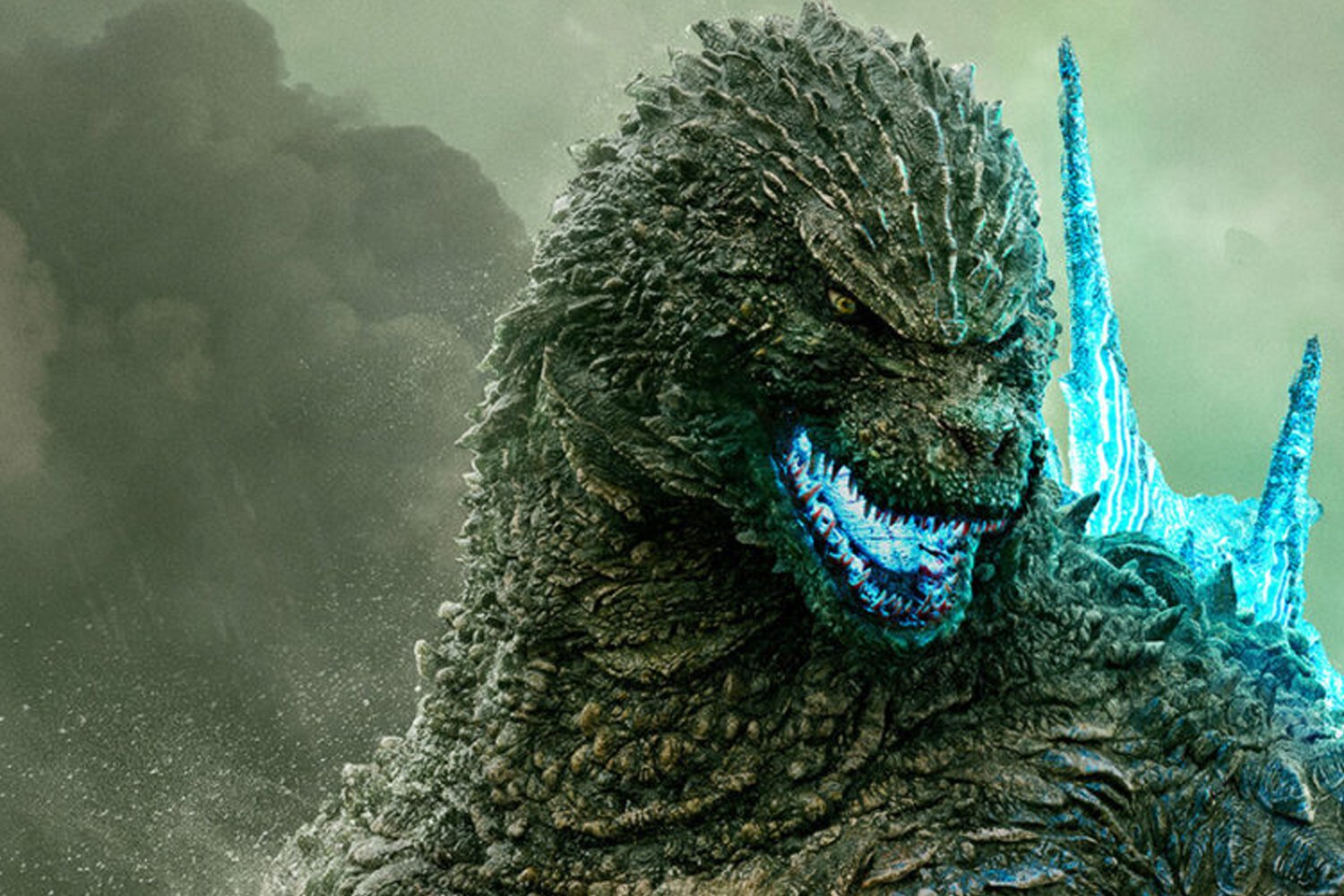Prolific American author (and professor) Isaac Asimov started writing Foundation 80 years ago. While countless sci-fi adaptations have come and gone during that time, Foundation will just be getting its first chance in live-action this Friday on AppleTV+ (not that they haven’t tried before!). io9 spoke with David S. Goyer—showrunner, writer, and executive producer—about the changes needed to be made to the classic tale but one of its stars, Lee Pace, had a great way of calming fan fears: “I would say that reading the books is an equally pleasurable experience to watching the show, but a different one.”
Pace is no stranger to space epics but he’s also starred in fan-favorites like Pushing Daises and Halt and Catch Fire. In Apple’s Foundation, he plays Cleon, Emperor of the Galaxy. To breathe life into a character who is mostly in the shadows of the novels, one Cleon was turned into three—Brother Dawn, Brother Day, and Brother Dusk—a ruling dynasty of Cleon clones that will seemingly never end. When we asked Pace over a video call recently about the complex philosophical nature of such a role and story he told us it was definitely “cerebral.” He added, “But I think when we’re kind of approaching the investigation of what is a human life, you know, we’re asking ourself: Do we have a soul? Do we have a soul if we have many different bodies? Are they the same soul? Do we have a soul if we have no body? Do we have a soul if our body is metal and not flesh and blood?”
Sci-fi has often seemed to portend what’s to come for humanity, and Asimov’s works are no different. Hari Seldon’s “psychohistory” method may not exist but thanks to countless scientists, we do know in some ways which direction the world is headed. So how exactly does something like Foundation play in 2021 considering, well, everything? “I think that science fiction offers a place for us to have that investigation without the triggers of contemporary life on Earth,” Pace told io9. “You know, we’re not talking about American politics. We’re not talking about covid. We’re not talking about, you know, climate change. But we are.”
Read on for our full chat with Pace below (edited lightly for clarity). We spoke about his hopes for Foundation season two, how he views the trio of Cleons, and he told us who one of his top three favorite writers is.
Jill Pantozzi, io9: The series makes a lot of room for inventing new ways of telling the story, obviously, which was so grand and probably really hard to figure out how to break in the adaptation. Being in projects like The Hobbit and the Marvel films, I think you’re probably already very familiar with how fans can be very fervent in how adaptations are created. How do you think Foundation fans are actually going to respond to the changes that have been made for the story?
Lee Pace: I would say… first of all, let me say that I’m a fan. I love science fiction. I love this kind of science fiction, this kind of speculative fiction about what happens when humans get off-planet. You know, what happens? Ursula Le Guin is one of my top three writers. I’m very curious in the investigation of humanity when it’s abstracted and off-planet. To speak to… you know, this isn’t a book report [laughs], it’s a television show and I would say that reading the books is an equally pleasurable experience to watching the show, but a different one. You know, it’s a different pleasure. Reading a book is you kind of sharing a mind with a writer for a while and your imagination can take over. For example, with my character in the first Foundation book, Cleon isn’t an active character—he’s spoken about but it’s happening very much off stage. So I think in the telling of this story in a dramatic way, it’s important to bring him on stage. Because we are telling the same story. We’re telling it in a different way.

io9: Speaking of Cleon obviously, that’s such a huge change, having these three characters over time. I’ll be honest, it took me a few minutes to catch up when the first sort of change was made and I said, “Oh, ok. Now it’s this one is this one.” How did you plan to prepare for those slight or maybe perhaps not so slight character changes in your performances over this series?
Pace: Well, it’s like a riddle, isn’t it? It’s like a riddle about inherited power, the Cleons. I think about it like this, I think that the Emperor of the galaxy is a role that many men play, this series of men plays. So I will play many men who, for a time in their life, are the Emperor of the galaxy. Which is an extraordinary abstract concept—that an individual would have absolute control over, you know, 10,000 planets, trillions of people, this mind-boggling expanse of space. He can decide who lives, who dies, who prospers, who suffers. It’s the office of a God, in a way. And that’s the role that he’s filling, but what I play is this sequence of men who also believe this fantasy that they are the same men. But they’re not, right? You’ve got Brother Day looking towards Brother Dawn and saying “It’s imperative that you are exactly like me. These are the lines. This is the blocking. These are your props. This is the costume. Now you’re the emperor of the galaxy and you have to do it exactly like me.” But Day is also looking at Brother Dusk and saying, “I’m going to do this better than you. You know, where you failed, where you made mistakes, I will be great. I will be…I will distinguish myself as a Cleon.”
So, what I find most interesting in the character is those differences between them, where their sentience lies. Like their individuality, where does that lie?Does it come from, you know, like in the first episode they have an in-person encounter with Hari Seldon and you see Brother Day, I think very much hearing Hari Seldon’s prophecy and says, “What do you think we do all day? You know [laughs] we’re constantly solving these problems that you think are going to take down the galaxy. We have for 400 years. What’s to say we’re not going to be able to continue doing that? Because we live forever. When you’re long dead, there will still be a Cleon here, running things.” I think the child hears it very differently. I think the child hears that and believes it and believes that this burden that he has to carry is… he wonders if he’s capable of it. As I fulfill, as I play that character, I think it’s interesting to see him find his.. .realize that he’s a human and not a God. And then what does he do? That’s the question. What does he do then?
io9: These stories were written by Asimov in the ‘40s and ‘50s, inspired so many more other sci-fi projects for years and probably will still for years to come. How do you think this story actually plays in 2021, both with where science fiction is at this time and also just everything that’s happening in the world, obviously, and making humans perhaps think a bit more about where we’re going in the future.
Pace: Well, I would say that we don’t offer conclusions. I think we’re just investigating humans, you know? What does life mean? I think that’s really, really what our story is about—aside from the orbital platform and the jump ships—really what we’re looking at are these characters. And I think that science fiction offers a place for us to have that investigation without the triggers of contemporary life on Earth. You know, we’re not talking about American politics. We’re not talking about covid. We’re not talking about, you know, climate change. But we are. We’re opening that investigation in a way that many people of different points of view can take in that story and have a conversation of our values in an abstract way, not, you know, with all the triggers. Which excites me to be a part of that story because… you know, I… it’s a mess out there. [laughs]
io9: [laughs] To say the least.
Pace: Does that answer your question? I think it’s a really good question, so I’d love to give you a clear answer on it, you know?

io9: I mean, it’s kind of like you’ve got things like Star Wars, which are much more “entertainment-y” you know, it’s made to be “oh, big explosions, this and that,” and this is much more heady. So that’s I guess what I’m getting at.
Pace: It is a cerebral thing but I think when we’re kind of approaching the investigation of what is a human life, you know, we’re asking ourself: Do we have a soul? Do we have a soul if we have many different bodies? Are they the same soul? Do we have a soul if we have no body? Do we have a soul if our body is metal and not flesh and blood? You know, what quantifies a life? Is it numbers? You can count the minutes, but does that really illuminate the changes that have taken place between those minutes? Are there questions that spirituality better investigate than science? This is the investigation, kind of, we’re embarking on.
I believe that David is setting the stage for a vast story. So knock wood, we get some time to tell it, we get more than [laughs] one season to tell it. I hope we’re lucky enough for that. Because I think it’s a big idea and I think that with Isaac Asimov’s material we can, with today’s audience, really investigate what that means in a new way—I think we’re beginning to. It’s something that I believe us, the makers of the show, and the audience do together. I get like a very…here I’m doing a junket of interviews right now and I’m very cautious about what to say about it because I so much enjoy taking in the story on its own terms. So I don’t…I want to give a caveat to any of the answers I’m giving to you to say that, you know, this is just my opinion about these characters that I’m playing. I’m happy with my work and I want the audience to kind of come away from it with their own impressions and opinions. This kind of riddle of the Cleonic Dynasty can be solved a lot of different ways, there’s a lot of different conclusions you can come up with about what inherited power means. Watching their consistently violent actions compared to Salvor Hardin’s… you know, never chooses violence, always knows there’s another way to get where she needs.
It’s one of those moments, I know what we’ve got, it’s about to go out into the world and I’m very curious to see what people make of it.
Foundation also stars Jared Harris as Hari Seldon, Lou Llobell as Gaal Dornick, Leah Harvey as Salvor Hardin, Laura Birn as Demerzel, Terrence Mann as Brother Dusk, Alfred Enoch as Raych Foss, and more. The first two episodes arrive this Friday, September 24 on Apple TV+ with weekly drops thereafter each Friday. Keep an eye on io9 for more Foundation later this week and next.
Wondering where our RSS feed went? You can pick the new up one here.














